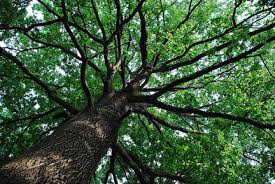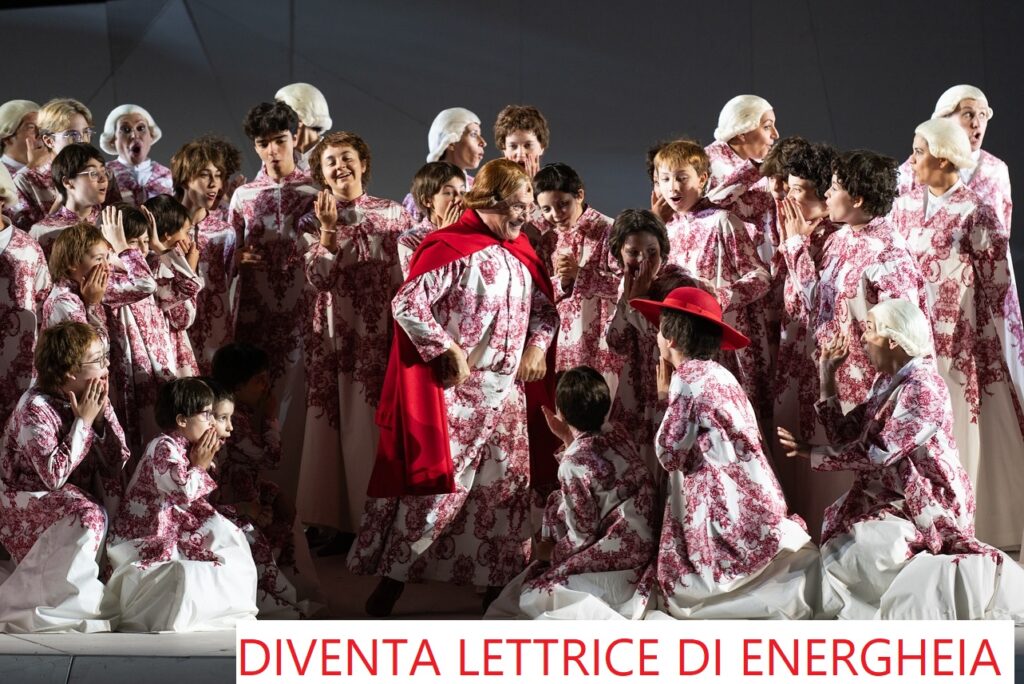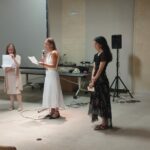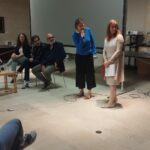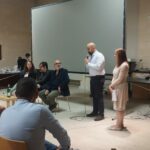May God say no!_Thuku S. Muthee
_Africa Teller 2001/2002
It usually took the span from when the sun wakes up to the time when
it goes behind Nyandarua Hills for an adult man to walk from
Gatuanyaga to Kirati. It was a long and tiring journey and many said
its like keeping the sun company. Others joked that they would not
wish their sons to marry from there for fear that dowry animals would
grow very thin along the journey. Njoroge was sure he had broken a
record this day. By the time animals started sheltering from the
blazing afternoon sun, he could see Kirati hills in the horizon. He
arrived there just as the first herds started streaming back from the
grazing fields. That was a record only attained in the distant past by a
messenger who had gone to report the unfortunate falling of a family
sacred tree. A very scaring occurrence indeed.
Kirati was the land of Njoroge’s grandparents, his father having
migrated to Gatuanyaga only twenty-four full seasons ago. A full
season was made up of two minor seasons, that of sweet potatoes and
that of millet. It was just after the millet harvest that Munene,
Njoroge’s father, had migrated. It was not a normal migration.
Actually, a young man had threatened to hurt him far winning a girl
he had targeted for marriage. It was a taboo for people of Munene’s
blood to fight and he was therefore advised to go and live with his
uncle in Gatuanyaga. Njoroge had accompanied his father for the
yearly pilgrimage visit to this place some five full seasons ago. He
was a young boy then. Now he was a man, having faced the knife
bravely two seasons past and not many people would recognise him
outright. Wangeci, his grandmother, was however quick to pick the
conspicuous facial characteristics.
“Is that a son of Munene I see?” Wangeci asked.
“Yes, grandmother,” He answered as they shook hands.
“And is this not my husband?” she asked, scrutinizing him closely.
“I see you can never forget me”, he said, jokingly.
“How can I mistake my husband for anyone else?” Wangeci asked,
proudly. “Come this way my son.”
Having been named after his grandfather, Njoroge would always be
Wangeci’s husband even though her child. Such is the way of life.
The father is son to his sons. Life is cyclic and the present is a pure
reflection of the old and the past.
A few relatives and neighbours came to greet Njoroge as a young girl
served him with sweet potatoes and milk under a Muu tree in the
family courtyard. As custom dictated, you never probe for a visitor’s
intentions before wiping the dust off his throat. Wangeci was also
famous for her hospitality.
From her kitchen door, Wangeci struggled to read Njoroge’s face for
any clues about his visit. Though her eyes were slowly failing her,
she could see him quite clearly. His physique was of a full-grown
man and she wondered if he was married. But what could be wrong?
She had noted that his face was more lifeless than a stone. It was
also unusual for a person to come alone from Gatuanyaga, more so
during the season of sweet potatoes. Has Munene slept? No! It
cannot be! We his parents are still alive. He is too young. How can
God allow the pain of parents burying their children? It ought to be
the other way round.
“May God refuse!” she hissed and spat to expel that bad thought.
Njoroge leaned back on the tree trunk. He had literally done away
with everything offered, having eaten nothing the whole day. Such is
the sweetness of being among your blood, he thought. He looked at
the pile of sweet potato peelings between his outstretched legs and
thought they resembled a big anthill.
“You have arrived, my son?”.
Njoroge was startled to find his grandfather, weakly supporting
himself with a darkened walking stick.
“Yes, grandfather”, he answered as he rose to shake hands. He could
not fail to note that his grandfather was now very old and weak. As
people say, no one would refuse to release him if the ancestors called.
As they walked to the hut near the animal shelter, Njoroge agonized
over the question – statement, “you have arrived…?” Did he know
that I am coming? Does he know what has happened? Njoroge was a
distraught man. Of course, he was of the lineage of Gitene,
the famous peacemaker. All people of this blood were known for their
non-violent nature and their ability to foretell events. Peacemaking
was their primary role. Among their common sayings was blood is
not water to be poured anyhow. They never went to war nor did they
hunt wild animals. To them all life was sacred and it was even a taboo
for them to intermarry with aturi, the ironmongers. Aturi were the
makers of spears, swords and arrows, all thirsty weapons which
quenched their thirst with blood. How could people of Gitene offer
their seeds to such an industry?
Darkness was falling in and elders from around the village had to be
summoned in a hurry. A few elderly women also came to keep
Wangeci company. None dared to ask for the reason of their coming.
You should never be greedy for news. The elder Njoroge introduced
the son of Munene and requested him to quench the thirst of the
elders’ ears.
Njoroge cleared his throat, a customary sign of readiness to pour forth
what was in his heart. Every person present could sense that it would
not call for a celebration. Njoroge, like an elder in the making, would
not tell his story in a tasteless manner. He first explained, in detail,
the peaceful state of Gatuanyaga village before the arrival of the
white men. All listened attentively, without interrupting.
“We got a message that they were coming towards our village six
moons ago”, he explained. “They camped at Kiri for quite some time
and caused a lot of problems there.”
Of course, everyone present was not aware of the arrival of men who
looked like butterflies in the eastern areas of the land. Within the last
two full seasons, these butterflies had increased in number. Many
people now believed Mugo wa Kibiru, who three generations ago had
‘seen’ many butterflies coming from the east with an iron snake. At
that time many people did not understand and warriors threatened to
kill the snake and burn it. Now they had arrived and their evil acts
were causing a lot of concern throughout the land.
“They arrived three moons ago,” he continued. “Our people
welcomed them very well. We gave them a place to build, we offered
them millet and sweet potatoes and elders slaughtered their sheep for
them.” He paused and took a deep breath. “It seems we were wrong.
They are bad men with a big eye for other peoples things.”
“With all that hospitality?” Somebody asked from among the group.
How can that be? How can guest have a big eye for his host’s
property? Many people shook their heads in disbelief.
“One day, they took someone’s sheep by force, when elders went to
them they refused to hand it over. Warriors decided to go and demand
for it but they didn’t known how evil those men can be. You see they
have magic sticks which emit fire through a mouth that never closes
and makes a loud scaring sound. If that fire gets you, you are thrown
back and you die very quickly. That day we lost two young men.”
Gasps were heard in the room. Somebody made a very unnatural
sound. A woman called out the name of God, probably out of fear.
“Elders resolved to sanction a big attack on the white men. They
didn’t want them there anymore. However, my father argued against
it saying that more blood would be shed on mother earth. They only
agreed to do away with the idea when he offered to make a blood
brotherhood bond with the leader of the white men.”
Elders could be seen nodding their heads in approval. Munene had
proved his blood. Njoroge explained how a blood brotherhood
ceremony was performed. The leader of the white men, nicknamed
Wakaniuru for his long pointed nose, became Munene’s blood brother
after being ‘joined’ with a sheep of one colour.
“My father even gave him a piece of land and twenty sheep as a sign of
brotherhood. Wakaniuru promised to be peaceful”. Njoroge reached for
a gourd of sour milk and took a sip half-heartedly. All waited anxiously.
“These white men are animals”, Njoroge started, in a rather high
pitched tone, his voice raced with a conspicuous tinge of hatred.
Many were also quick to sense a fire for revenge but hoped that it was
not real. “They still went ahead and stole someone’s cattle and sheep
on the day older than yesterday. We lost three more people to
Wakaniuru’s men.”
“Unbelievable!” shouted one woman who had to be cooled down by
elders.
“Our elders went on a peace delegation yesterday”, Njoroge continued,
“but Wakaniuru himself blew his magic stick against one of them.”
“What?”, wondered one elder. That was unheard of. You can not kill
one who comes in peace! All elders shook their heads as women
called out names of some famous ancestors.
“The rest of the things happened too fast,” Njoroge went on. “People
came from all sides, screaming and armed. Wakaniuru and his men
blew their magic sticks against the people. Many were thrown back in
great pain and death. But people were very many and Wakaniuru’s
men panicked and ran away. The warriors caught Wakaniuru and
paraded him in front of the screaming village people. They sentenced
him to death immediately,” Njoroge paused. All in the room were lost
for words and many listened with their mouths half open.
“As is the custom,” he continued, “my father, as Wakaniuru’s only
blood brother, was required to strike him first so that he could never
demand for any blood wealth. But how could a person of our blood
do that? How?” Njoroge paused, painfully. No one in the poorly lit
hut was in a mood to answer his question.
“The warriors seized my father and forcefully fixed a spear in his
hand which they drove into Wakaniuru’s face before beating the white
man to death.”
All faces fell and everyone in the room spat. That was the customary
act of people of Gitene every time one envisioned the blood of a
human being?
“As they looked at Wakaniuru and his magic stick, the other white
men reappeared and started blowing their sticks loudly. Many people
fell to the white mans’ witchcraft. Even women and children were not
spared. People screamed and ran. It was total madness. I hid in a
thicket and when I peeped through, I saw a scene of death. Very many
people lay dead. The only person living was my father. He stood next
to Wakaniuru’s body, holding his ceremonial stick and a green twig.
Then the other white men approached and blew their evil sticks. I saw
him fall to the ground.”
There could never be enough words to describe the painful feelings
within the group. Wangeci rose, beat her thighs then sat down facing
the mud wall. Many spat. All wondered.
How? How could they kill their blood brother? How could they kill
women and children? It was all unbelievable. At no time in all tribal
history had that ever happened. The elder Njoroge cleared his throat and
all set their ears, ready to hear at least one comforting word of wisdom.
“Son of my son”, he started “I did not know what you would come
with but it is surely hurting. To you all, never forget that the true
source of our pride is in being peaceful to all. Munene did not let us
down. Did you hear what happened?” he paused. “Your work as
peacemakers is going to be more harder and dangerous. But never
forget, in peace there is pride but in war, pain. Both peace and
violence come from within the deep wells of the heart. Many people
have filled these wells with hatred, envy and war and they are no
better than animals of the wild. Be ready, for a time is coming when
killing a human being shall be equated to killing a goat. When women
and children shall kill and be killed in the battlefield,” he paused and
sighed deeply.
“People of my blood I fear they will also kill you and force you to
kill. But on that, I pray, may God say no.”
He groped for his walking stick, rose, and headed for the door but
suddenly turned back.
“Never forget what we say. We must never fatten the hyenas by using
human beings.” He exited and went into the pitch-dark night.
An eerie quietness descended over the group, people started leaving
quietly, one after the other. Njoroge was lost in thought. When shall
the life of a human being be equal to that of a goat? When shall men
become animals as to kill women and children? What about those
who are holding peace tokens, like his father? No! People cannot live
in such an evil world.
In his half-sleep, he thought he heard a girl shriek. Voices and a
commotion followed. A woman kept repeating, “He has been called,
he has been called!” Njoroge made no effort to get up. He already had
seen enough and had a promise of worse to come. Yes, when blood
will apparently be spilt just like water. He clenched his fist in anger
and couldn’t help praying, “May God say no! May God refuse!”.

